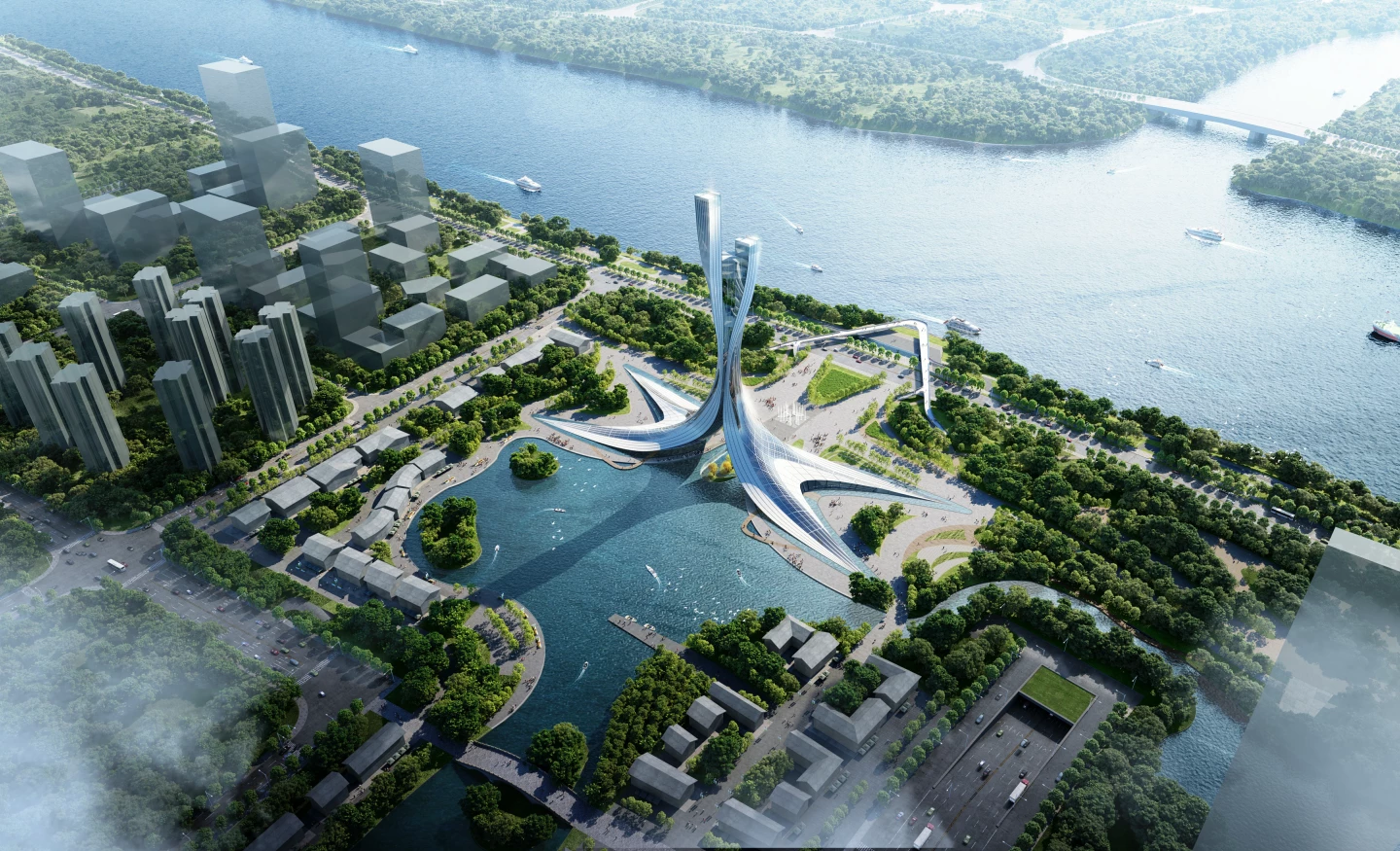RMJM, which is the firm behind the design of Europe's current tallest skyscraper, the Lakhta Center, in St. Petersburg, Russia, was recently chosen to create an unusual project in Hunan, China. The Xiangjiang Gate will rise to a maximum height of 177 m (580 ft) and consists of two twisting towers that join together near their center.
RMJM's vision for the Xiangjiang Gate was chosen following an architecture competition and, once complete, will serve as a monument with a panoramic viewing platform and a tourist information center.
The project will comprise two separate parts that come together and twist as they rise (the renders also appear to show glazing joining the two near the top). Its inspiration is rather complex and best put in the firm's own words.
"The concept behind the design is deeply rooted in the history of the city," says RMJM. "The design pays tribute to the geographical location of the city but also to its convergent spirit. Hangyang is a city where old and new, culture and modernity, converge in many aspects. The joint towers represent the essence of humanity: fire. Hengyang is a city of ancient history. In religious tradition, it is said that Hengyang was the first to bear the mark of Zhu Rong, the God of Fire and South, whose story is contained in 'Shan Hai Jing · Great Wild West'. Viewed upside down, the building becomes a goose flying through the sky. In ancient Chinese poetry, Hangyang was a winter refuge for wild geese escaping the cold of the north, earning it the nickname of the Wild Goose City."

Details are light at this early stage but the Global Construction Review reports that the project is part of a larger development that will also include an office space, housing, amusement park and commercial units.
There's no word yet on when the project is expected to be completed.
Source: RMJM






